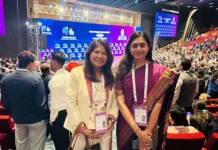ITANAGAR, Jun 8: A two-day workshop on the state government’s ‘Annual Development Agenda 2018-19’ began here on Friday. Ministers, parliamentary secretaries, MLAs, commissioners, deputy commissioners (DC), secretaries, and other top officials from the state government are participating in it.
Addressing the inaugural session, Chief Minister Pema Khandu said, “It is for the first time that an inclusive review exercise is being undertaken and a roadmap chalked out for ensuring that all announcements made in the budget are executed and finished, in entirety, within the stipulated timeframe, during this financial year.”
He said the objective of the workshop is also to strengthen the feedback system, involving the DCs and the departments to sort out issues hindering smooth implementation of schemes and projects at the field level.
“Through such exercises the institution of DCs will be strengthened and decision-making at grassroots level will be empowered – a planning system that was prevalent when Arunachal was a union territory,” Pema said.
Expressing concern over the current planning process at the top level, “which, if allowed to continue, will jeopardize the whole system,” the CM said he hoped to see that the grassroots level of planning system of the union territory days is restored in due course of time.
Pema said the DCs have been delegated with maximum power and responsibilities in order to make the decentralized planning process a success.
“About 25 flagships programmes have been announced in the budget, which is to be implemented as per the guidelines prepared,” the CM said. He requested the DCs to play a proactive role in successful implementations of these schemes.
The chief minister also said the state government’s effort to have a separate civil service cadre for Arunachal under the UPSC could become a possibility.
“The matter is being talked at the political level at the Centre and may be materialized after the 2019 elections,” he said.
Deputy Chief Minister Chowna Mein in his speech exhorted everyone to ensure that the initiatives taken by the government reach the last mile of the society. He stressed on coordinated efforts to ensure that the new schemes are implemented well on the ground.
“Although the government takes many pro-people initiatives, it has been observed that many of the plans and policies of the government are not implemented due to lack of coordination and ignorance,” the DCM said.
He said that to ensure the success of these schemes and programmes, it is important that all the stakeholders, right from the people’s representatives to the departmental officers and DCs, are sensitized on the priority areas of the government.
The DCM informed that the state government had constituted 25 committees to frame guidelines for major budget schemes.
“In the recently held cabinet, majority of the guidelines have been approved, so that the schemes can roll out on field immediately,” Mein said.
He asked the DCs to conduct jan sunvai sammelans on the first week of every month in different locations of the districts and disseminate information about the programmes and policies of the government.
Informing that the NITI Aayog has given topmost priority to ensure time-bound transformation of 115 aspiration districts on the basis of key performance indicators, he requested stakeholders, especially secretaries and commissioners, to act proactively on this issue.
Legislative Assembly Speaker TN Thongdok emphasized on a proper planning process for effective implementation of government policies and programmes.
Chief Secretary Satya Gopal spoke on the State Annual Development Agenda programmes.
Finance Development Commissioner Kaling Tayeng also spoke.
Planning Special Secretary Himanshu Gupta made a PowerPoint presentation highlighting the schemes and programmes under SADA, budget, new guidelines of NESIDS, NEC, District Innovation and Challenge Fund, DDUSY, etc, and briefed on CSS.
Earlier the CM launched the monitoring dashboard, http://arunachalmonitoring.com, which is an automated centralized web-based application to aid the process of monitoring of all developmental projects.
He also launched the ‘Arunachal Rising’ campaign, which is aimed at enhancing the dissemination of information about government schemes at the grassroots level, using print media, social media, and audio-visual mode.
The objective of the campaign would be to highlight the positive work of the government, improve transparency, and improve the feedback system in the government. (CMO and DIPR)

